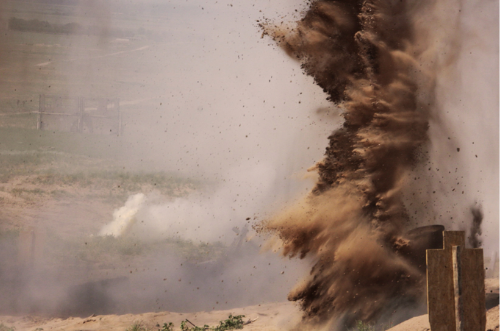

Our Explosions and Explosives experts' experience is diverse and involves cases brought under the Explosives Act 1875, The Explosives Regulations 2014, the Terrorism Act 2006 and the Health and Safety at Work Act 1974.
Our experts have experience of improvised explosive devices (IEDs), Molotov cocktails, pyrotechnics, nail bombs, mortars, pipe bombs, pressure cooker bombs, rockets, shells and more. They are able to comment on trigger mechanisms, detonators, switches, timers etc.
The effects of IEDs can vary considerably, depending on the type, quality and quantity of explosive filling, the components used in the packaging of the explosive and the expertise of the creator. Our explosives experts can examine alleged IEDs and their component parts and assess the viability and possible effects of the initiated device.
Homemade explosives manufacture can be extremely hazardous and for certain explosives can result in a low yield, even under ideal conditions and with large quantities of starting materials. IEDs themselves can be unpredictable and unreliable depending on their construction. We can examine items, check scientists’ findings, consider the viability of manufacturing explosives or IEDs from the paraphernalia recovered, evaluate the likelihood of successful manufacture and discuss the potential effects of the end product.
With regard to seizures of chemicals and equipment, our experts can advise on their potential explosives applications and also on their non-explosives uses. Chemicals might include gunpowder, acetone peroxide, hydrogen peroxide, nitroglycerin, nitromethane, TNT or picric acid. We also assess the usefulness of documents and materials alleged to be of use in manufacturing explosives.
We also undertake casework involving incendiary devices and fireworks (including their modification for illicit purposes) and can advise on their construction, viability and explosive effects.